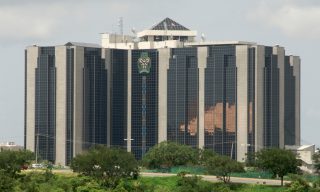Under the directive of the Monetary Policy Committee (MPC), the Central Bank of Nigeria (CBN) is looking to set up measures that will limit the access that deposit money banks have to government securities.
The decision was provoked by the Committee’s concern over banks choosing to abandon their key roles of stimulating economic growth through lending to the private sector, by investing in government instruments – treasury bills and bonds – at the detriment of the economy.
There already exists an amount of government instruments banks can own, as explained by CBN Governor, Godwin Emefiele after the May 2019 MPC Meeting this week. “The truth is that yes, according to our own regulations, there is a particular minimum percentage of treasury bills or government securities that a bank must invest in, in order to remain liquid,” Emefiele said.
However, most deposit banks have abused the treasury bill investments window, according to Emefiele, and the Committee has observed that rather than granting credit to the private sector, deposit banks tend to direct their focus mainly on buying government-secured securities.
The MPC reckons this “unfortunate” practice by banks adds little value to the economy. In response, the Committee directed the management of the CBN to put in place policies or regulations that would restrict the banks from unlimited access to government-secured instruments.
The argument that a preference to lend money to the government via securities, as against investing in sectors that would add significant value to the economy, stalls growth is logical. As seen in developed countries, access to credit is a prerequisite for achieving real economic development. And Emefiele noted that institutions who “act as intermediaries in providing credit and are called catalysts to credit and growth in the economy must be seen to perform that responsibility.”
Thus, it is quite unfortunate that as opposed to providing sufficient loans to small and medium enterprises (SMEs) and the real sector in dire need of credit as well as other players in the private sector, banks keep directing liquidity to other areas.
However, a closer look at the case of Nigerian banks in this regard would explain and perhaps justify why they tend to neglect their primary function of providing credit to the private sector in pursuit of a more secure option – government bills.
One of such reasons is the lack of confidence about future costs, demand, and economic prospects. The simple truth is that based on the present state of the Nigerian economy, lending to some sectors is considered too risky by banks.
There is also empirical evidence that investments of any kind are cyclical, and financial institutions provide funds to meet future demand. So if demand falls, firms cut back on investment. But if economic prospects improve, then they will increase the infusion of money as they expect future demand to rise.
Applying that principle to Nigeria, where the economic environment isn’t very encouraging for enterprises (small and sometimes big) as well as the presence of high interest rates on loans which most businesses are unable to pay back, lending is even riskier for banks who try to reduce the number of bad debts they record.
This is apparent in the high rate of Non-Performing Loans (NPLs) commercial banks record yearly, which maybe is the biggest issue that discourages them from lending to the real sector. Albeit, while providing an update on the level of bad debts in the industry, the CBN boss said that there is a “substantial, significant and encouraging improvement” in the level of NPLs.
“If you recall, the prudential is that banks should have a maximum of five percent in NPLs. I must say at this time it is about 19 percent on the average which is a significant improvement from where it was … About a year or two ago, it was close to 15 to 17 percent and moderated to 10 percent,” Emefiele said.
Moreover, to support deposit institutions, the CBN boss said that the apex bank is making efforts to bring down the rate of NPLs. This is to encourage deposit money banks to resume aggressive lending to sectors they consider to be risky.
As the apex bank implements the directive of the MPC to reduce the rate of banks’ investment in government securities, other substantial measures should be taken to encourage lending and growth in the real sector. A major step in that direction would be the reduction of the Monetary Policy Rate (MPR) also known as interest rate, which was retained at 13.5 percent after this week’s meeting.








